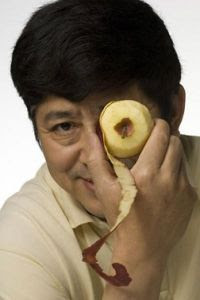Source: PhysorgCornell researchers have identified a dozen compounds -- triterpenoids -- in apple peel that either inhibit or kill cancer cells in laboratory cultures. Three of the compounds have not previously been described in the literature.
"We found that several compounds have potent anti-proliferative activities against human liver, colon and breast cancer cells and may be partially responsible for the anti-cancer activities of whole apples," says Rui Hai Liu, Cornell associate professor of food science. Liu is affiliated with Cornell's Institute of Comparative and Environmental Toxicology and is senior author of the study, which is online and published this month in the Journal of Agricultural and Food Chemistry.
With co-author Xiangjiu He, a Cornell postdoctoral researcher, Liu analyzed the peel from 230 pounds of red delicious apples from the Cornell Orchard and isolated their individual compounds. After identifying the structures of the promising compounds in the peel, the researchers tested the pure compounds against cancer cell growth in the laboratory. In the past, Liu has also identified compounds called phytochemicals -- mainly flavonoids and phenolic acids -- in apples and other foods that appear to be have anti-cancer properties as well, including inhibiting tumor growth in human breast cancer cells.
|
|
|---|



